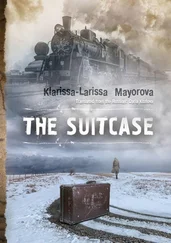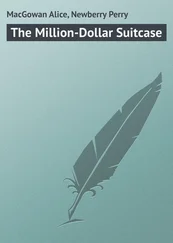Why’s that? It’s busy over there?
I’m busy over there! On top of everything, I’ve been put in charge of a weekly newsletter. Don’t laugh. It’s not funny. I’m the one writing everything — reports of ongoing construction projects, future construction projects, profiles of new equipment, personal accounts—
Personal accounts?
Like success stories, very gruesome, with the same ending tacked on — Thank you, Filatov Eye Institute, for giving me back the ability to see my glorious country in all its fine detail. Something like that anyway, patriotic, good for business. The patients are encouraged to write these. Being illiterate and legally blind doesn’t stop them. Nurses deposit giant stacks on my desk daily. I used to go through them, salvaging anything I could, but now I write them myself, though the guilt of throwing them out makes me read them first.
Let me guess — Amalga Svinovna’s brilliant idea.
She retired. Actually, I believe she moved to Brooklyn. Now the head is Ivan Kopeyk. You may remember him, that small fascistic burn specialist with the cleft lip. He’s singled me out, in a good way. The man has literary pretensions. I’m not complaining, but an hour in his office can be draining. Aside from the assistant, he keeps promising to get me a raise.
Then I take it you’re not even considering…
Considering what? said Pasha.
You know what!
Pasha sighed. Just because I didn’t come the moment you guys beckoned, that doesn’t mean I’m not considering.
I know, said Robert. And it’s not my place. Either way I’ll understand. Whatever you decide.
But they won’t, said Pasha, thumb pointing backward. Even in the middle of a lake, they were over his shoulder.
They will, too, in time, said Robert, pleased. They were the bad guys, he the understanding papa. (Ashamed.)
Pasha leaned over the boat’s edge, wanting a gulp. His mouth was dry, forehead burning. Somewhere along the way, he got distracted — fingers dipped in water, none on his tongue. Am I considering moving here? Either they tiptoe around the subject or they ram right into it, as if their approach could steer my decision, their choice of words or the tone in which they’re said influence the outcome. But this need for techniques only reveals an inherent fallacy, thought Pasha, whose aversion to life-decision discussions arose foremost from his skepticism of the very concept. If decisions existed (he’d never seen one for himself), they certainly weren’t born on the same plane as conversation. Decisions ripened in the moldy darkness of the cellar, whereas articulation needed windows. There’s a lag, thought Pasha, a distinct lag, between the inchoate stirring forces and the perceivable world. But what was he getting at?
Pasha’s lower lip jutted. His eyelids sank. The strength required to keep them lifted was now aiding the mental process. When Pasha thought, bodily functions dimmed significantly. He was the biological antithesis to the concept of multitasking. Robert panicked. He feared that Pasha’s wilting meant that his son had grown desperate for a return to land. Robert began twisting his torso this way and that, hoping to indicate through fruitless motion that he was addressing the issue. Meanwhile the sun spilled like syrup over treetops and it got colder. Wind gathered over the lake, abiding clearly demarcated roadways and traffic regulations as it traveled.
It’s too late, thought Pasha. These conversations are like seeing the light from a star that hasn’t existed for a century (because that’s how poets think). Two years ago it was too late, and now the matter’s dead. There’s no tiptoeing around a corpse, and neither would bulldozing be of much use. His decision to stay in Odessa had been made long ago, only why hadn’t he realized until now? The lag!
His son losing patience, Robert needed to forge ahead, no more beating around the bush. What about the book? he practically screamed. Any news?
What news?
Reviews, remarks… My God, Pasha, absolutely anything!
Here and there. Nothing substantial.
What’s here, what’s there?
I got a letter.
From?
Massachusetts.
Who?
Some academic.
Why?
Wants to translate my poems.
Robert tried to fight off the glow. You must write back, Pasha! Don’t miss out on such an opportunity. Maybe you can arrange to meet while you’re here? Did he say where exactly?
Cambridge.
But Pasha, Cambridge, that’s where—
Shhh! Did you hear that? said Pasha.
What?
Suddenly, in an amplified yet familiar voice distorted by distance, their names were called. Caught! It was as if they’d committed some petty crime and were about to be uncovered. The terror pulsed through their thighs. The voice was shrill, blaring. Was it too late to disassociate from their names and hide behind the mirror of the lake? A boat soon came into view. Levik sat in back with widespread arms. Marina perched in front. A lightning-shaped vein throbbed down the length of her forehead, and her neck was double its usual size, engorged with blood. An outstanding feature was her stillness. She seemed to have been frozen as she raged. A large, open sky was the background to this disquieted woman, who appeared manipulated by a force of which she wasn’t aware (like the mute button on TV). Levik’s discarded National Geographic had contained a photo spread of tornadoes, or killer wind tunnels as the magazine referred to them, in the act of destruction. One of the images particularly confused the senses. The left half of the photo was an intact shed and an automobile whose rear end was beginning to lift, and the right half was exploded debris, pixels in chaos. The image was highly polished, colors vibrant and provocative. Now Pasha’s senses were similarly confused. An implicit contradictory quality detached the moment from the present, exposing time’s scaffolding.
Marina’s stillness was concentration. She’d been putting off a visit to the ophthalmologist and was having difficulty ascertaining whether the objects in her purview were father blob and brother blob. Once this was confirmed, her spine turned to string.
Marina! yelled Robert. Are you OK?
OK, OK, OK, echoed the lake.
We lost our oar, Pasha said as Levik drew level.
Levik’s cough sounded a lot like idiots, but this wasn’t the time to interpret the coughs of heroes. Levik was prepared to give up an oar. He began by inspecting the oarlocks, ended by attempting to rip the oars out of them. Neither stick came loose. How’d you — cough — manage? He regrouped. In three spasmodic strokes, he docked the boat. With a grunt he dove into the lake and bored a trail of froth up to Robert and Pasha’s feet. He thrust his weight upward like a flying whale (propelled by sheer mania), grabbed the oar from Robert’s hands, and docked their boat alongside. A finger pointed. Robert and Pasha, unsteady on their feet, got out of their boat and into the one where Marina lay with wide, unblinking eyes, looking rather peaceful. Levik got in and pushed off. The boat wasn’t meant to hold this much weight. They were sitting below water level, in a ditch. Pasha resumed his project of ladling out the water with his cap. Robert assisted with his hands.
But they made it back and weren’t even charged — a measly victory, insignificant when faced with Esther, who blamed them for the fact that she’d originally found humor in their enterprise. Laughter had been the wrong response. None of this was funny, because they were idiots. Nothing was wrong with Esther’s throat. They were also to blame for the worrying she’d been obliged to do, when the doctor had specifically ordered her to manage the stress, and for the fuss she and Marina had been obliged to make. They’d bothered the lifeguards, harassed two suntanned and dazed park rangers, thrown a fit at the rental station, threatened the adolescent staff, requested to speak to managers, who turned out to be the ultimate in suntanned and dazed. No one was inclined to go on a search for two grown men in a rowboat after an hour and a half. That’s because no one could imagine what sort of grown men these were! But Esther could. Image retrieved, she began to quiver.
Читать дальше












